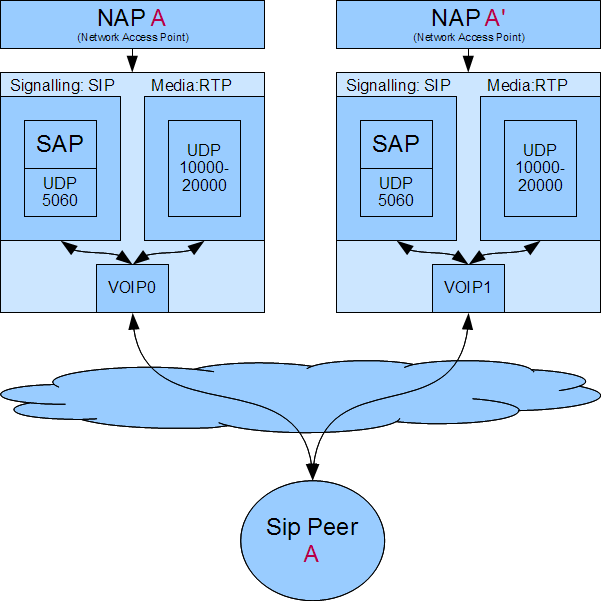Voip Redundancy
From TBwiki
(Difference between revisions)
| Line 1: | Line 1: | ||
Redundancy of both RTP and SIP can be achieved by configuring one [[NAP]] per VoIP interface for a specific remote proxy. | Redundancy of both RTP and SIP can be achieved by configuring one [[NAP]] per VoIP interface for a specific remote proxy. | ||
| − | [[Image: | + | [[Image:VoIP Redundancy 0.png|50%x50%px|VoIP Redundancy Topology]] |
| + | <br> | ||
| + | == Signaling Redundancy == | ||
| − | + | In the above example, we have configured two [[NAP]] Network Access Point that reaches the same SIP destination. In the event the ethernet interface VOIP0 went down, the NAP A would become unavailable, and thus routing would take place using ''NAP A'.'' | |
| − | + | ||
| − | In the above example, we have configured two [[NAP]] Network Access Point that reaches the same SIP destination. In the event the ethernet interface VOIP0 went down, the NAP A would become unavailable, and thus routing would take place using ''NAP A'.'' | + | |
| + | <br> | ||
== Media Redundancy == | == Media Redundancy == | ||
Revision as of 14:53, 20 July 2010
Redundancy of both RTP and SIP can be achieved by configuring one NAP per VoIP interface for a specific remote proxy.
Signaling Redundancy
In the above example, we have configured two NAP Network Access Point that reaches the same SIP destination. In the event the ethernet interface VOIP0 went down, the NAP A would become unavailable, and thus routing would take place using NAP A'.
